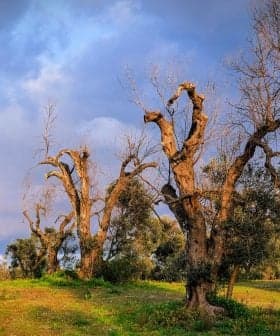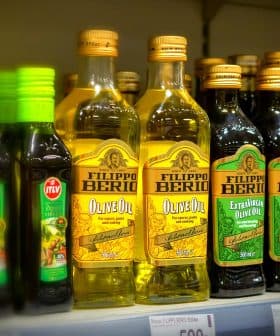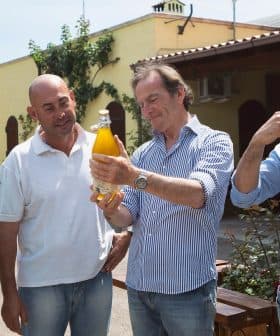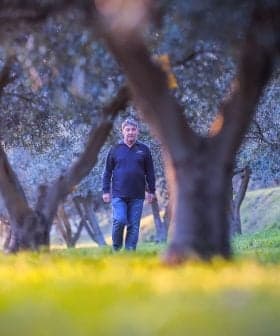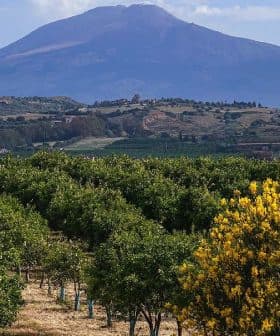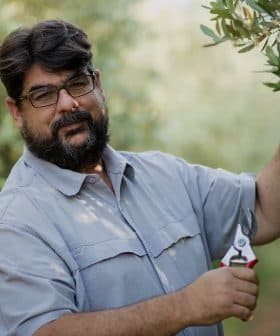Farmers in Apulia Deal with Drought, High Costs as Harvest Begins
Steep price rises for energy and fuel are adding unprecedented costs for producers. Meanwhile, agricultural associations warn drought-induced damage is worse than previously predicted.
Farmers in Puglia are facing lower olive oil yields due to a severe drought, leading to increased production costs and a need for compensation and infrastructure upgrades. Local olive oil millers are working together to ensure fair pricing based on actual yield and quality, while new olive tree cultivars in Xylella fastidiosa-hit areas are showing resilience and productivity despite the disease.
Farmers in the southern Italian region of Puglia have warned local institutions that the severe drought that hit the country will result in lower olive oil yields than previously expected.
They asked for compensation and for the strategic overhauling of critical infrastructures, such as irrigation, which they believe are in need of new investment.
A new policy is needed… to face this long-lasting price rise shock, which is menacing both farming and livestock. We risk losing agri-businesses that will be forced to sell or close.
Presidents of dozens of farming associations linked to the Assoproli Bari producers’ organization asked for immediate support for growers who are now facing a steep rise in production costs.
See Also:In Tuscany, Farmers Cope With Climate Challenges While Striving for Top QualityAccording to the local branch of the Italian Agricultural Confederation (CIA), production costs for olives, livestock, vineyards, vegetables and cereals have risen by 25 to 50 percent. This is due to the rising prices of animal feed, fuel, transportation, water and energy.
The CIA added that water is increasingly essential in a territory plagued by a long-lasting drought. The growing demand for irrigation not only stressed the water basins and reserves but also highlighted the many deficiencies of an aging system through which high volumes of water are wasted.
Additionally, fuel for agriculture is increasingly expensive. Damage incurred on Puglia’s crops from extreme weather events has led to increased fuel consumption. Meanwhile, demand for electric energy has also grown 25 percent in the last 12 months, while equipment prices are also on the rise.
Given the strength of the international competition in terms of olive oil production volumes and lower workforce costs, which also affect the market prices, the local associations asked for new policies for the whole sector. According to their presidents, many in Puglia could soon choose to leave the olive farming sector because of the uncertainties about its economic viability.
“A new policy is needed… to face this long-lasting price rise shock, which is menacing both farming and livestock,” said Raffaele Carabba, CIA Puglia’s president. “We risk losing agri-businesses that will be forced to sell or close with relevant consequences on local economy and occupation.”
To work on those margins and give value to high-quality extra virgin olive oil, three local associations of olive oil millers have also joined forces.
The Quality Olive Oil Millers Association (FIOQ), the Italian Association of Olive Oil Mill Operators (AIFO) and the Apulian Olive Oil Mill Operators Association (AFP) have agreed on a common policy for the first time around three focal points.
The millers will fix the price of the olives only after they are transformed so that the price is based on the actual (rather than predicted) yield and quality.
The millers will also work to prevent fraud by including the origin of the processed olives and their cultivars in the invoices. Finally, the millers will delay the opening of the mills due to the later ripening of the drupes as a result of the drought.
According to Riccardo Guglielmi, FIOQ’s president, the millers believe that “pricing the olives only after transformation and balancing it on yields and quality is meant to curtail market speculations.”
Those speculations, he added, “happened in the past when some producers have slyly used chemical additives to alter the natural color of the olives in order to trick millers about the real ripening stage of the olives.”
Since the yields heavily depend on the ripening, “the yields themselves might be a consistent parameter to fix a price. It might also be used to promote quality,” Guglielmo said.
In other regions of Puglia, the first olive trees planted in Xylella fastidiosa-hit areas are becoming productive, opening new possible scenarios for the local olive oil sector.
Xylella fastidiosa has ravaged Puglia’s olive groves but is not stopping resilient cultivars, such as Favolosa and Leccino, from yielding healthy fruit.
In an olive orchard in Acaya, in just two years after it was planted, the trees are starting to produce fruit.
“It is a proof of concept plant to show that it can work. We are having olive oil yields of 20 percent for Favolosa and 15 percent for Leccino,” local farmer Fabio Ingrosso told Lecce News24.
While Leccino and Favolosa are not completely immune to Xylella fastidiosa, the cultivars still manage to grow and show a high level of resilience to the otherwise deadly bacteria.


